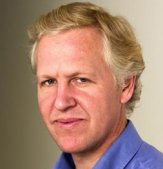Former Football Association chairman Lord Triesman’s allegations last week to a UK Parliamentary Committee concerning four FIFA Executive Committee members certainly caught the eye of the media.
And they have already resulted in one of the four – Worawi Makudi of Thailand – claiming he is planning to sue the former UK Foreign Office minister, who also headed England’s unsuccessful bid for the 2018 World Cup until forced to resign a year ago.
But what is likely to be their longer term impact?
I have listened to what he told MPs a couple of times (readers can do the same by clicking here) and, while there is plenty of detail in his allegations, at no point is there any indication that any ExCo member stated directly that he would vote for England if xyz happened.
That does not mean, of course, that the allegations have not done further damage to FIFA’s already deeply tarnished reputation.
But it suggests to me that the accused are unlikely to face retribution from FIFA.
If FIFA President Sepp Blatter has reached a similar conclusion, then it seems a smart move to pledge, as he has, that the matter be dealt with before the May 31-June 1 Congress where he is seeking another four-year term.
This should prevent any build-up of pressure on Blatter or his challenger, Mohamed Bin Hammam, to guarantee that so-and-so be exonerated as the price of Association X’s vote.
One question the MPs did not ask Triesman was whether he would have made public his allegations if England had won the bid.
I can understand why; Parliamentary inquiries have precious little use for hypothetical questions.
Nonetheless, it is one that needs to be asked since, if the answer is anything less than a resounding “Yes”, it implies that a degree of sour grapes is involved in what is now happening.
Certainly, that is how much of the rest of the world is likely to see it.
And that, in turn, underlines the impossibly difficult position the FA finds itself in as it seeks to plot an international strategy in the wake of last year’s events.
Try to build bridges and FIFA insiders will ask why England appears such a sore loser; threaten to break away and you need other associations to break away with – something there has so far been little indication that anyone else is prepared to countenance.
So, does that mean we soldier on indefinitely with the same old FIFA, which, for all its faults, has somehow managed to preside over a vast global expansion in the sport it oversees?
Not necessarily.
Blatter is widely expected to be re-elected on June 1 and, if this truly is to be his last term – and I don’t see how it could be otherwise – I fancy we might see some changes in the way he goes about his business.
There are two reasons for this:
He will no longer have to have in the back of his mind that if he displeases another power-broker, it may come back to haunt him when he seeks re-election.
Having studied him for some years now, I believe that one thing he craves is global recognition for his achievements during his years in football and it must have occurred to him that FIFA’s poor image isn’t helping his case.
One way in which it seems to me he could signal that a new, improved Sepp Blatter is kicking off a final term that will cement his legacy would be to commission an in-depth external investigation of what really did transpire in the 2018/2022 World Cup hosting contest, complete with carefully thought-through proposals on how to reform the decision-making process.
I don’t think such an undertaking would have a prayer of cleansing FIFA’s image unless it were truly independent and unless those in charge came from outside football and were figures of unimpeachable moral authority and integrity.
Justice Albie Sachs of South Africa is one example of the sort of the sort of figure who might be equal to the task; magistrate Eva Joly of France is another.
As I have observed before, one thing FIFA does have is plenty of time to get the system right; there should be no more votes for future World Cup hosts until 2018.
David Owen worked for 20 years for the Financial Times in the United States, Canada, France and the UK. He ended his FT career as sports editor after the 2006 World Cup and is now freelancing, including covering the 2008 Beijing Olympics and 2010 World Cup. Owen’s Twitter feed can be accessed at www.twitter.com/dodo938

